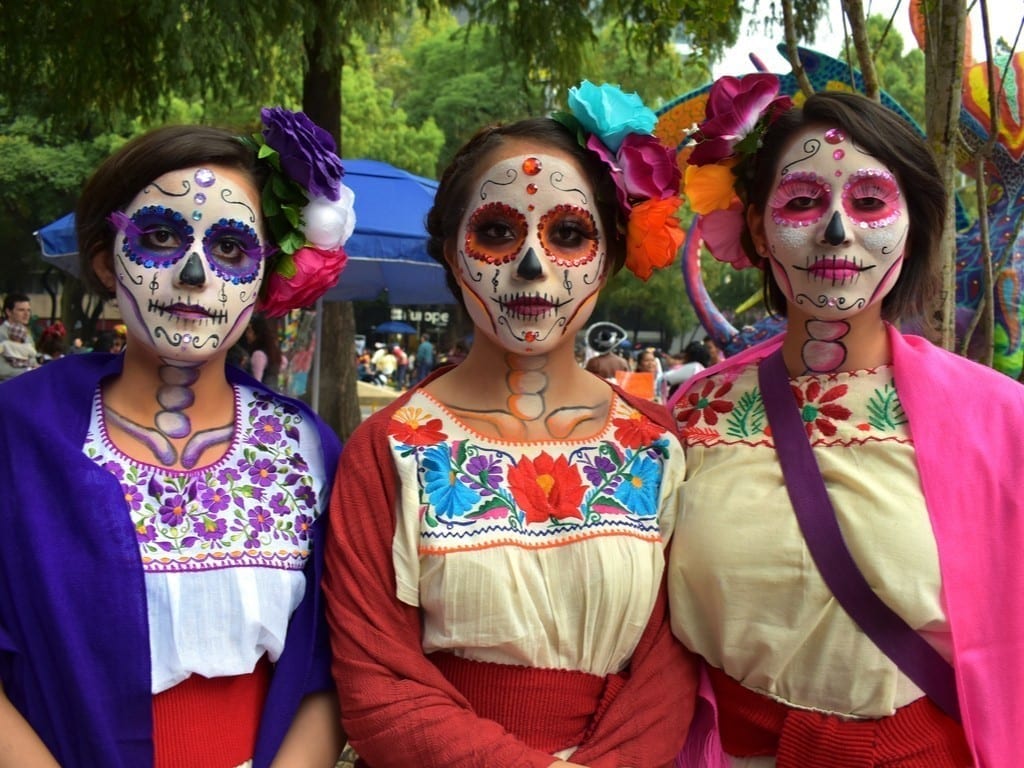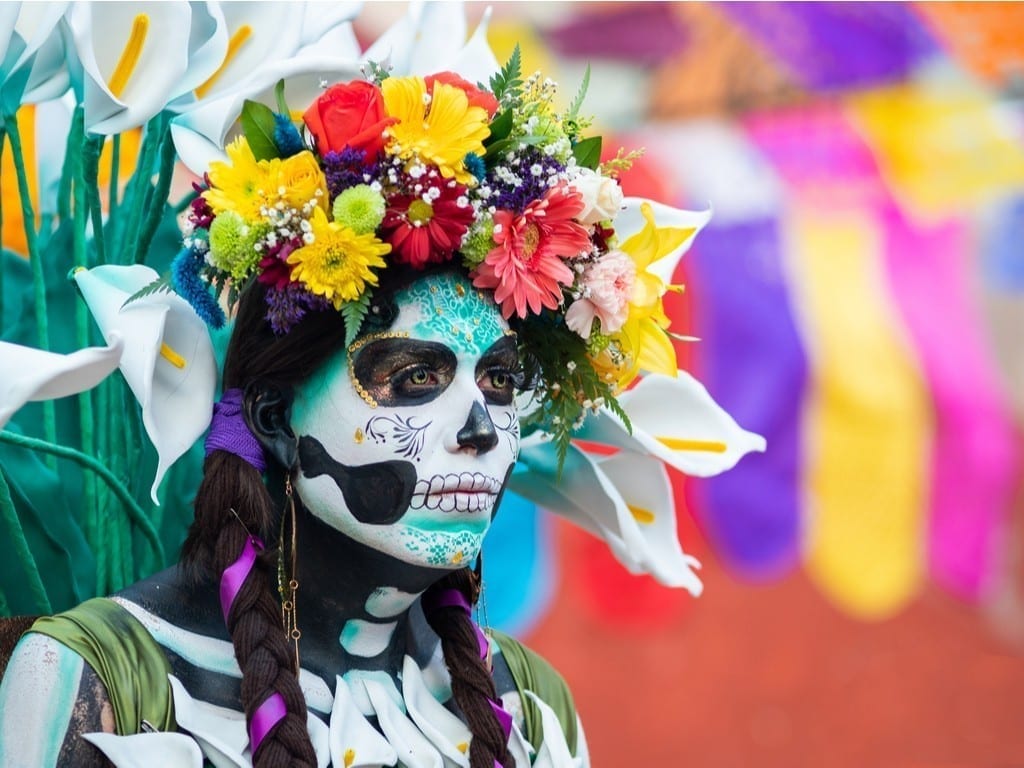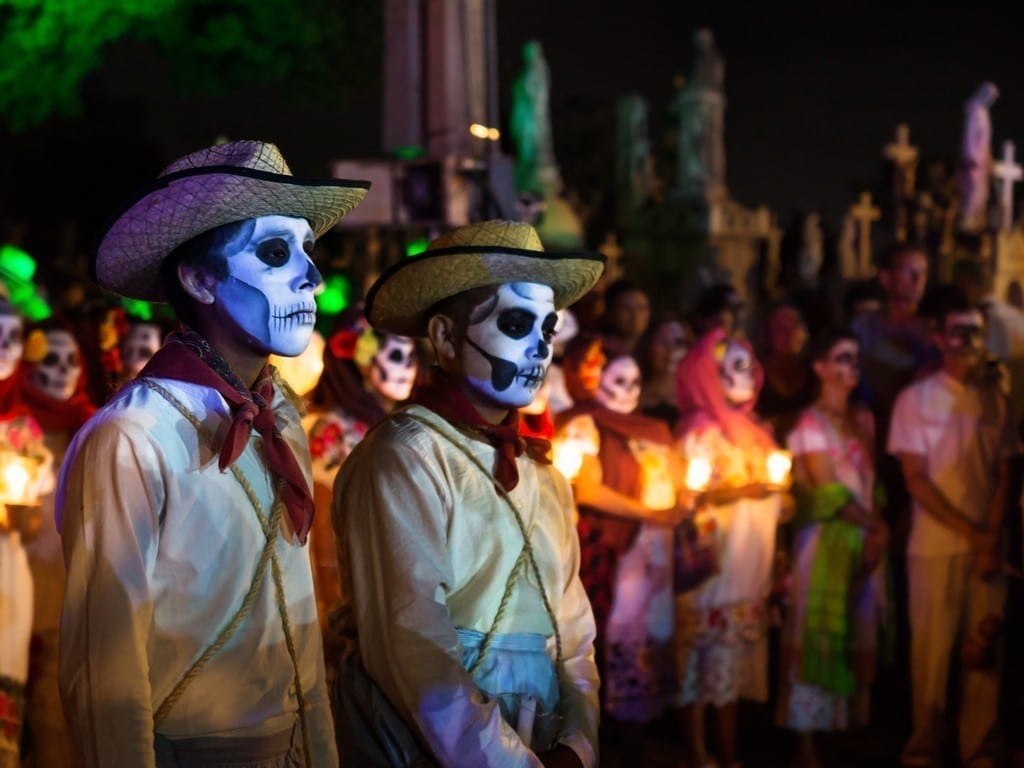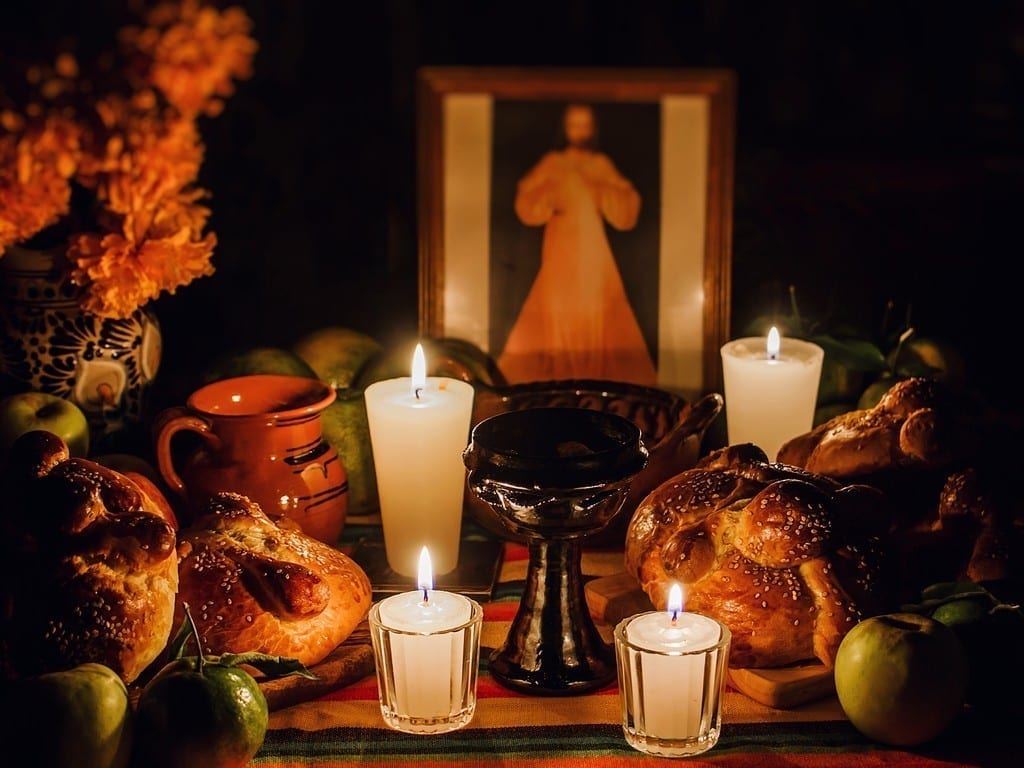In most modern cultures death is not supposed to be something festive. This inevitable event always brings grief and is shrouded in mourning, like the very memory of the ones who passed away. Still, a unique custom is an essential part of the culture of Mexico, where pre-colonial and Catholic traditions have merged to enrich the world’s heritage with the celebration of the Day of the Dead (el Día de Muertos). From mid-October to early November, Mexican streets are decorated with swags of bright marigolds and plunge into orange and violet shades. And inside, altars with treats are installed in every home to honour the souls those who are no longer around.

The Day of the Dead is annually celebrated in Mexico on the 1st and 2d of November. The format and spiritual meaning of this holiday is different from Halloween, which, however, is also celebrated quite widely.
Arising from traditions and collective consciousness, there’s a view that the souls of the dead are again among the living in these first days of November. To revere them, Mexicans gather in wide family circles, bake sweet bread of the dead (pan de muerto), make skull-shaped sweets, go to cemeteries and celebrate widely. And in 2016, inspired by the film ‘007: Spectre’ from the James Bond series, the authorities of Mexico City launched the parade of the Day of the Dead, a profitable tourist event that attracts up to 2,5 million viewers annually.

This year, the COVID-19 pandemic has made its own adjustments and traditions go digital: the parade could be accessed on online platform, so the procession returns on screens. With regard to mass events and family celebrations, they are also subject to restrictions: municipalities are already reporting the closure of cemeteries and bans on carnivals, fairs and night candlelight processions.

Jointly with the event agency VUELA CORP., the Mexico City government-run Tourism Development Foundation (Fondo Mixto de Promoción Turística) will launch an application called Xóchitl. The app’s name is a reference to the word ‘flower’ in Nahuatl (the traditional dialect of the Aztec people) and the character of the Mexican cartoon ‘The Legend of the Black Charro’. Using the app, one could connect to live streams of performances of creative groups in different parts of Mexico, upload photos of deceased loved ones for a virtual altar and watch a dance and artistic parade that usually takes place along the central streets of Mexico City. Though, this time it will be recorded in a pavilion with restricted access and compliance to sanitary rules. The developers have been working on the app since June and plan to pack Xóchitl with historical content, interesting facts about the culture and traditions of Mexico, and an AR-gaming interface. However, the Day of the Dead is approaching and the app was not yet available when this article was published.
Competitions of thematic art installations are among other popular online events. The entrants, creative groups and individuals, are invited to share designs of the altars with offerings to guests from the infraworld. In the states of Sonora, Michoacán and Puebla, winners will receive cash prizes (from 6,000 to 20,000 pesos or 280 USD to 950 USD), tablets and books. The Mourning Contest, a tradition peculiar to the state Queretaro, also goes online this year. The Institute for Culture, Tourism and Youth Affairs of the city of San Juan del Río (Instituto de Cultura, Turismo y Juventud de San Juan del Río) called on Mexican women aged 18 and older to compete in grieving in a two-minute video format to be rated by the Institute’s jury. The reward for the most plausible performance is 3500 pesos (~ 165 USD), 2500 and 1500 pesos prizes would go to second and third places, respectively. A discussion flared up on the event’s page on Facebook: users are indignant that drag queens and transgenders are not invited to take part and participants shall confirm their gender with ID cards.

The national character of the Day of the Dead has become a hallmark of Mexico: colour combinations and the recognizable Catrina skeleton (La Calavera Catrina, a symbol of the holiday created by cartoonist José Guadalupe Posada and employed in Diego Rivera’s murals) inspire designers and global brands. For the second year in a row Nike is releasing a limited sneaker collection, and the toy maker Mattel complements Barbie series with holiday-themed dolls. Both batches were sold out just after being released.
Hope remains that the cancellation of mass events, restrictions and recommendations of the Mexican authorities would be accepted and understood by communities that are highly reverent to their customs. Given the Mexican traditionalism, the recommendation to refrain from mass family gatherings is the key point that risks being unfulfilled. After all, a festive procession through the streets of Mexico City is rather a bright event for tourists and its suspension hits the leisure industry and budget incomes, and not collective spiritual values.
Mexico is among the top ten countries in both total infections and spread rates of coronavirus with restrictive measures causing significant damage to the economy (in the second quarter of 2020, the GDP fell by over 17%) and peso stability. With a decrease in tourist flows to a minimal level (according to the Ministry of Tourism, the losses have already surpassed 7 billion USD), it is quite reasoned that Mexican authorities digitalized traditional events aiming to stir up the interest in the annual event and the country’s culture.

